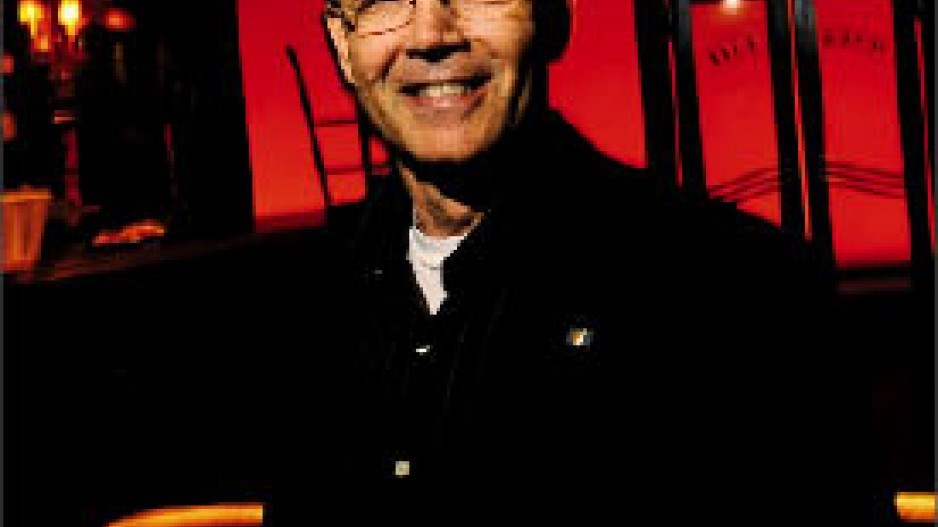Vancouver?s two main mayoral contenders don?t agree on much but both concur that financing cultural institutions is a viable strategy to attract tourists and stimulate the region?s economy.
?A lot of people come to our city these days for cultural tourism,? Vancouver mayor Gregor Robertsonsaid earlier this year in a speech at the launch of the PuSh Festival.
?It gives our city vibrancy and life and meaning. And, it?s something we need to support as a big priority at city hall.?
Non-Partisan Association mayoral challenger Suzanne Anton echoed that sentiment when she chatted with Business in Vancouver in October.
?Culture is a huge economic driver. It?s a huge business driver. It?s what makes our city interesting and it encourages people to come to the city and do business here,? she said.
Those convictions are why both Anton and Robertson supported a plan, made public in September, to bail out the Vancouver Playhouse Theatre by:
?forgiving a $426,888 debt;
?providing a one-time grant of up to $400,000; and
?providing a $100,000 grant.
The city has also agreed, on an ongoing basis, to provide the Playhouse with a $150,000 annual operating grant.
Playhouse artistic director Max Reimer told BIV that he received a wide range of reactions to that news.
People who oppose all public funding of the arts were outraged, whereas people who avidly support the arts were ecstatic.
It was a group of people in the middle who most concerned him. They support the arts but were concerned that the Playhouse was getting $926,000 worth of support at a time when other arts groups are similarly struggling to survive.
What these people did not understand, Reimer said, was that the Playhouse merited the cash infusion because it has inexplicably been treated differently from all other arts organizations in the city since it was founded in 1962.
The different treatment stems from the way rent is charged that makes the theatre company ineligible to apply for an operating grant.
The City of Vancouver provides the Playhouse with a theatre rental grant of $500,000. It then charges the Playhouse $500,000 for rent.
Because the Playhouse gets a theatre rental grant, it is not eligible to apply for an operations grant.
In contrast, the city charges both the Vancouver East Cultural Centre and the Firehall Theatre Society $1 per year each to operate in city-owned buildings.
Because those theatre companies pay their rent without the help of a theatre rental grant, they have successfully secured operations grants.
The Firehall Theatre Society received a $65,000 operations grant last year, whereas the Vancouver East Cultural Centre received a $110,000 operations grant.
Why is the Playhouse treated differently?
?That?s a good question. This is where we scratch our heads,? Reimer said.
He then mused that it may stem from the fact that a department of the City of Vancouver, known as Vancouver Civic Theatres (VCT), gets to record the $500,000 rent on its books.
Making a note of that incoming cash makes VCT appear to be a more significant operation, justifying more staff with higher salaries, Reimer said.
Going forward, the good news is that the Playhouse?s longtime broken business model is fixed.
Even though the Playhouse will still be the only theatre company in town to endure the cumbersome in-and-out method of getting a rental grant from the same body to which it pays rent, it will be eligible for a $150,000 operations grant.
The theatre company has also taken steps to reduce rental costs at off-site facilities.
Last year, for example, the Playhouse paid $260,000 for storage space at 270 East Second Avenue.
Agreements have since been hammered out for the Playhouse to use space at four different locations for a total of $59,000:
?456 Cambie Street;
?601 Cambie Street;
?270 East Second Avenue; and at
?Vancouver Community College.
That annual cost may be eliminated if the Playhouse is allowed to move into city-owned space at 160 West First Avenue.
That space requires $8 million in investments to bring it up to the building code.
?It?s like someone saying that you can have a site rent-free as long as you put in $8 million. We could do it, though,? said Reimer, who plans to launch a capital fundraising campaign to finance upgrading 160 West First Avenue.
?What business people have a hard time figuring is that raising millions of dollars is easy. It?s raising thousands of dollars that is tough. You can get people to buy a piano. They just won?t pay the piano player.? ?




